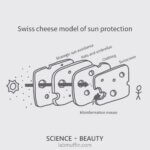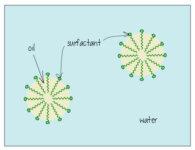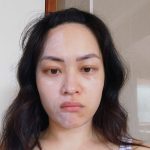How do you check if information is reliable? One shortcut that works well (most of the time) is to check if the source itself is reliable! This is much faster and easier than trying to learn the science behind an area you’re not already familiar with – it takes a lot of time to properly factcheck information, even for experts.
Here are some red flags to look out for with questionable sources in beauty.
(This post was inspired by a Threads post by Jen of The Eco Well!)
Dishonest behaviour
This points towards a disregard for ethical communication, and a lack of respect for their audience and truth in general.
Examples to look out for:
- Highly inconsistent opinions – changing your mind with new info is good, but changing too much is a sign that some opinions aren’t held honestly
- A pattern of promoting myths, then later pretending they knew all along after someone else debunks it
- Undisclosed sponsorships and conflicts of interest
- #brandpartner or #ad hidden near the bottom of the caption on social media posts (and nothing else) when promoting brands or products
- Affiliations on LinkedIn that aren’t disclosed on other platforms
- Dodgier content on their TikTok account (generally seen as a platform where you can get away with more)
A huge source of misinformation are perceived experts who behave dishonestly. Authority bias or the “white coat effect” means we’re more likely to believe people who seem like experts.
People take advantage of this by hiding what their qualifications actually are, or wildly inflating their credentials. For example:
- Chiropractors pretending to be medical doctors
- PhDs in irrelevant fields
- Presenting weekend courses like degrees
Over-reliance on appeal to authority is another big one. For example, people who frequently mention irrelevant qualifications in their content, instead of actual reasons:
- “I’m a cosmetic surgeon, avoid these sunscreens”
- “I’m a dermatologist, here are some product dupes”
This also makes it harder for people to understand which experts are the most relevant ones for particular topics, which makes it harder for us to factcheck other information.
Plagiarism
Common examples with beauty content creators:
- Frequently plagiarises/fails to credit people who helped or “inspired” them
- Only seems to cite scientific articles but has little relevant science background
People often plagiarise to seem more like an expert. You don’t hide your sources if you understand the topic well enough to know you’re adding value with your content.
This establishes credibility – other people believe them because of correct info they pretended was theirs. But because they don’t understand the topic, they get things wrong and spread misinformation – especially when they start to believe their own hype.
Plagiarism also demotivates good info sources, who worked hard but didn’t get the credit (a big cause of burnout). Eventually this leads to less original and accurate information overall, much like how generative AI content is starting to plagiarise other generative AI content.
Other bad information
Everyone has blind spots and makes mistakes. But if someone posts a lot of things that you already know are incorrect, their other information is likely also questionable.
Jen of The Eco Well posted a great short list:
- claiming mineral sunscreen is the “eco” option
- saying mineral sunscreen works by reflection, “chemical” sunscreens absorb
- self describing as a “clean beauty chemist”
- using EWG as a reference
- claiming everything we stick on our skin readily absorbs to our blood
- relying on ingredient lists as the basis for a product’s safety, performance or sustainability
This really isn’t exhaustive – I have a huge back catalogue of mythbusting content!
Check their friends
It’s a red flag if someone follows a decent handful of very sus people (although if they follow a lot of very sus people, they’re probably just following bad sources to track misinformation). It’s also a red flag if someone is good buddies with other questionable sources.
Again, no one is perfectly aware on all fronts. But if someone trusts many questionable sources, that’s a sign of poor judgement.
It’s also harmful when other perceived experts (who should know better) endorse and platform bad sources. This superpowers misinfo with a double whammy of authority bias.
If they’re willing to sacrifice their own standards for clout, they probably have low standards in other areas too (shoutout to Dr Rohin Francis of Medlife Crisis for this point!).
View this post on Instagram






“How do you know if information or sources are reliable?” Well, you (I) do searches and end up on this site…LOL I just bought your book; can’t wait for it to arrive!
#fangirl
What a valuable article! I love how you outline the red flags to watch for when evaluating the reliability of sources. Your tips are incredibly useful for anyone looking to navigate the vast amount of information available today. By emphasizing the importance of critical thinking and checking for bias, you empower readers to make informed decisions. Thank you for sharing such an informative guide!
Dear Michelle,
A while back, when I was preparing for a trip to Hawaii (before I found your channel), I was searching for a good sunscreen to take with me. I stumbled across the EWG sunscreen ratings, and I remember how overwhelmed I felt reading about “toxic” ingredients and “unsafe” products — I was so scared I couldn’t even sleep that night!
Since then, I’ve dug deeper, found more reliable sources, and learned what EWG is really about and why we shouldn’t trust them, haha. Your videos have been a big part of that process. They’ve clarified so many skincare myths and made it easier to navigate all the noise out there.
Thank you for putting in the effort to share such well-researched content. It’s incredibly helpful for those of us without a science background!
Best regards,
Marina
That’s fantastic to hear! I’m really happy to have helped 🙂
I have a question about this post and an unrelated question!
1. Do you have any tips on evaluating the reliability of scientific studies/journal articles?
I know some key things to check: the article’s citations, the conflict of interest statement, the sample size and methodology if it’s a study, other papers published by the author. And I have a solid grasp on utilizing critical thinking skills.
But I was wondering if there were other red flags to look out for? For example, I know some articles are peer reviewed and some aren’t – is there an easy way to check this and is that one of the things to look for?
2. Do you know of any sites/apps that allow one to reliably track or quickly check products for specific ingredients/find products that don’t contain said ingredients?
I was recently diagnosed with an allergy to sodium benzoate which I’m sure you know is in a LOT of stuff. I need to replace most of my soaps, hair care products, skincare products, etc. and it’s proving to be very frustrating and time consuming because I haven’t found an easy way to just look up a list of specific products with specific features (like scent, usage concerns, etc) that don’t contain sodium benzoate.
I’ve tried all the popular ones I could find (SkinSafe, Yuka, Think Dirty, Clearya, INCI database) but unfortunately I keep running into issues where they’re either difficult to use/buggy, don’t reliably have accurate lists of ingredients, or don’t have a large selection of products available in my country (US). I’m hoping there’s a better way to do this than just manually checking the ingredients of every product available in a specific category in a store or on a store’s website. :/